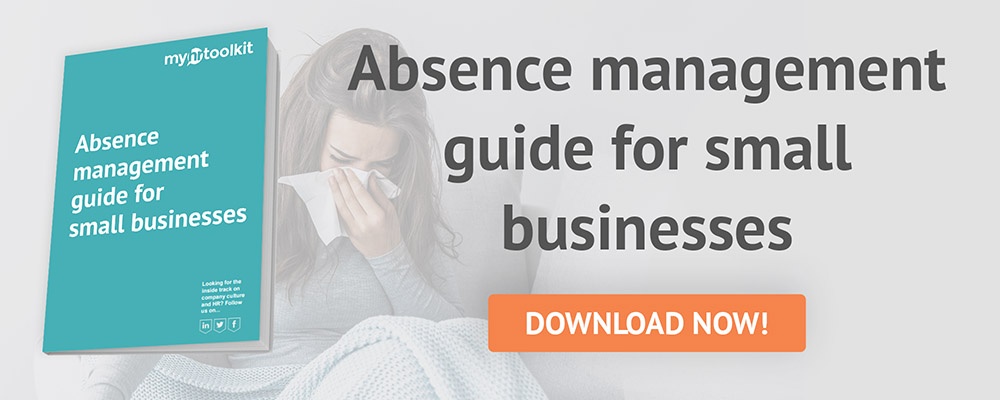What are the most helpful questions to ask an employee in a long-term sickness meeting? HR consultant Kate Marchant outlines some questions managers can ask employees who are on long-term sick leave or returning to work after a long absence.
One of the best ways to support and manage employees on long-term sick leave is to maintain regular contact with them. A good way of doing this is to have regular welfare meetings and/or carry out return to work interviews when they return to the workplace.
Many employers shy away from such meetings because they can be sensitive and sometimes difficult; managers can feel awkward about carrying them out. Of course, it depends on the individual circumstances as to the frequency of any such meetings and, in some cases, employers may need to take a step back when trying to manage long-term issues, especially if the underlying issue relates to mental health.
What can managers ask employees who are on long-term sick leave?

Managers can often feel uncomfortable speaking with employees who are on long-term sick leave and, often, take the view that it’s best to stay away. However, this can often amplify the effects of the absence with the employee feeling ‘cut-off’, which may in turn exacerbate or cause mental health issues. Of course, it’s a fine line and delicate balance between maintaining contact and being overzealous, leaving the employee feeling somewhat harangued.
So, with all this in mind, what are the questions you should be asking at a long-term ill health welfare meeting and/or return to work meeting? Here are a few ideas:
- How are you feeling? This is a good opener to get the employee talking about how they are finding things and if their health is improving.
- Have you any updates or changes in your condition/situation? This allows the employee to update the manager about their situation if they have had further contact with their GP or perhaps a specialist consultant.
- How can we support you? An open question to gain information on any support required and discussion as to how best it can be provided.
- Are there any reasonable adjustments we can make to help you return to work? This question often enables discussion about the reality of returning to work and adjustments that can be made to help them, for example an employee recovering from an injury may need to travel to the workplace outside of peak hours, or work remotely.
- Are you taking any medication and does it have side effects? This allows for some discussion about any medication and how it affects the employee – which may impact on any return to work.
- How often would you like to catch up? If the employee is to be off sick for a prolonged period of time, it is useful to ask them about the frequency of any welfare meetings and agree between you as to how often and where these should take place.
Track short and long-term absences across your workforce with an online absence management system.
Questions based on Occupational Health reports
A key enabler to having a useful and meaningful meeting with an employee on long-term sick leave is to refer the employee to an Occupational Health Professional in order to obtain a professional assessment about the effects of their condition, how long it is likely to last, what steps the employer might take to facilitate a return to the workplace, and recommendations on any adjustments that may need to be made. Any such recommendations can pave the way for some open and transparent communication with the employee.
If you have engaged with an Occupational Health professional and have a report from them which has been shared with the employee, questions to be asked may include:
- Have you had a chance to read the Occupational Health report and do you have any view on its contents? This is a good opener on discussion about the contents of the report and how the employee feels about same.
- The Occupational Health report has made some recommendations – what are your thoughts about them?
This presents an opportunity to have some exchange about any recommendations and how they might work, given the employee’s role. For example, if they are recovering from an operation and they have a fairly manual job, the report might recommend they avoid heavy lifting for a period of time. Discussion about how this will work in reality can take place – is it possible in their role and how will it be achieved?
If the employee has been off with issues relating to anxiety, the report might recommend steps that should be taken to prevent the employee being overwhelmed with work. How will this be managed and how can the manager monitor the situation?
Questions to ask when an employee is returning to work

If the employee is returning to the workplace, a return-to-work meeting should be carried out and questions to cover here could include:
- How do you feel about returning to work? This encourages the employee to raise any concerns about returning – perhaps they are feeling nervous returning after a lengthy period away and concerned about how they will be perceived by their colleagues and management.
- Do you feel fit to return? This helps establish whether they really do feel well enough to return.
- Is there anything we need to be aware of? This just gives opportunity for the employee to let the manager know of any particular issues e.g. if they need regular breaks, need to be located near a toilet etc.
- Would you like me to update you on any key activities whilst you have been away? A chance for the employee to be brought up to date with any key activities and/or changes before they go back to the workplace.
- Would you like to have some regular progress meetings over the next few weeks so we can discuss how you are feeling and if there is any specific support you require? It is useful to offer this so the employee knows they have time set aside to discuss their progress.
Ultimately, long-term absence meetings and/or return to work meetings are a useful way to keep the dialogue open with the employee, which can help facilitate a smooth return to work.
Individual circumstances always need to be considered, which is why asking open and non-judgemental questions like the ones covered in this article are often the best way to get the key information an employer needs in order to provide the best support to their employee.
Read more from the myhrtoolkit blog
How a phased return to work helps businesses with staff absence
How to assess reasonable adjustments for a disabled employee

Written by Kate Marchant
Kate Marchant is an experienced HR professional and CIPD Associate Member who offers straight talking HR solutions for SMEs with friendly and jargon free advice through her consultancy Running HR Ltd.


 Holiday Planner
Holiday Planner Absence Management
Absence Management Performance Management
Performance Management Staff Management
Staff Management Document Management
Document Management Reporting
Reporting Health and Safety Management
Health and Safety Management Task Management
Task Management Security Centre
Security Centre Self Service
Self Service Mobile
Mobile




